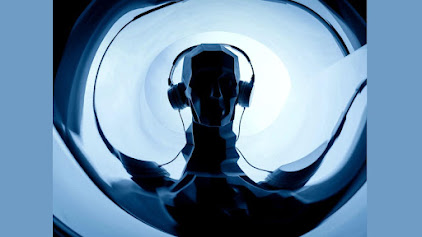The Debate Over AI Voice Clones in Podcasting: Why 'This Podcast Is Not Hosted by AI Voice Clones. We Swear' Advocates for Human Connection
AI technology has come a long way in recent years, and one area where it is making a significant impact is in the creation of natural-sounding voices. AI voice clones can replicate human voices so convincingly that it can be challenging to tell the difference between a real human voice and an AI-generated one. This has led to concerns about the potential use of AI voice clones in hosting podcasts and other forms of media.
The debate over AI voice clones in podcasting is centered around the use of artificial intelligence to replicate the voices of real people, including podcast hosts and guests. Some argue that this technology can enhance the production value of podcasts, while others believe it detracts from the human connection that is an essential part of the podcasting experience.
AI voice clones are synthetic voices created using artificial intelligence algorithms that analyze and mimic the vocal patterns, inflections, and other characteristics of a human speaker.
Some podcast producers see AI voice clones as a way to save time and money by automating the recording process and reducing the need for human voice talent. Others believe that the technology can help to create more engaging and immersive listening experiences for audiences.
"This Podcast Is Not Hosted by AI Voice Clones. We Swear" is a slogan used by advocates of human connection in podcasting. It is meant to emphasize the importance of maintaining authentic human voices and personalities in podcasting, and to resist the temptation to use AI voice clones as a shortcut or substitute.
Some people believe that podcasting is inherently a human-to-human medium, and that the use of AI voice clones diminishes the personal connection and authenticity that listeners value. They argue that human voices are essential for building trust, creating emotional resonance, and conveying subtle nuances of meaning and intention.
Some potential risks of using AI voice clones in podcasting include the possibility of creating misleading or false information, undermining the trust of listeners, and contributing to the spread of disinformation. Additionally, there are ethical concerns around the use of AI to replicate the voices of people who may not have consented to the use of their likeness.
Podcasters can maintain human connection by prioritizing authentic voices and personalities, engaging in dialogue with listeners, and using technology in ways that enhance rather than replace human interaction. They can also seek out diverse voices and perspectives to ensure that their podcasts reflect the full range of human experiences and perspectives.
One podcast that has been particularly vocal about not using AI voice clones is "This Podcast Is Not Hosted by AI Voice Clones. We Swear." This podcast was created as a response to the growing use of AI technology in the media industry, particularly in the creation of voices for podcasts and other forms of media.
The creators of this podcast believe that AI voice clones can never fully replicate the nuances and emotions of human speech, and that using them in place of real human hosts would ultimately lead to a loss of authenticity and connection with listeners. They argue that podcasts are unique because they allow listeners to form a personal connection with the host, and that AI voice clones would never be able to replicate this connection.
While AI technology has certainly made significant advancements in recent years, there is still a long way to go before it can fully replicate human speech and emotions. AI voice clones may be able to mimic human speech to a certain extent, but they will never be able to fully replicate the nuances and emotions that come with human speech. This is particularly true when it comes to hosting a podcast, where the host's personality and connection with the listeners are critical to the success of the podcast.
Despite the concerns about AI voice clones, there is no denying that AI technology has a significant role to play in the creation and distribution of podcasts. AI can help with everything from editing and transcription to personalized recommendations for listeners. However, it is important to remember that AI technology should be used as a tool to enhance the podcasting experience, not replace it.
While the use of AI voice clones in podcasting may be controversial, there are certainly benefits to using AI technology in other areas of podcast production. For example, AI can be used to transcribe podcasts quickly and accurately, making it easier for hosts to create show notes and transcripts for their listeners. AI can also be used to analyze listener data, providing valuable insights into which episodes are most popular and what topics resonate with the audience.
Another area where AI technology is making an impact in podcasting is in personalized recommendations for listeners. As more and more podcasts become available, it can be challenging for listeners to find shows that they are interested in. AI algorithms can analyze a listener's listening habits and preferences to provide personalized recommendations for new podcasts that they might enjoy. This can help listeners discover new shows that they might not have found otherwise.
Overall, while there are concerns about the use of AI voice clones in podcasting, there are also many ways in which AI technology can enhance the podcasting experience. As the technology continues to evolve, it will be interesting to see how it is used in podcast production and distribution in the future.In the meantime, for those who prefer their podcast hosts to be real humans, there are plenty of podcasts like "This Podcast Is Not Hosted by AI Voice Clones. We Swear" available. These podcasts prioritize the connection between the host and the audience and rely on the authenticity of the human voice to create a unique listening experience. It's a reminder that, while technology can enhance our lives in many ways, sometimes the simplest things, like a human voice, can be the most powerful.
In conclusion, the use of AI voice clones in podcasting is a topic of ongoing debate. While AI technology has certainly made significant advancements in recent years, there are still concerns about the loss of authenticity and connection with listeners that could come with using AI voice clones in hosting podcasts. The creators of "This Podcast Is Not Hosted by AI Voice Clones. We Swear" believe that human hosts are critical to the success of podcasts, and that AI technology should be used as a tool to enhance the podcasting experience, not replace it. As AI technology continues to evolve, it will be interesting to see how it is used in the creation and distribution of podcasts in the years to come.






No comments